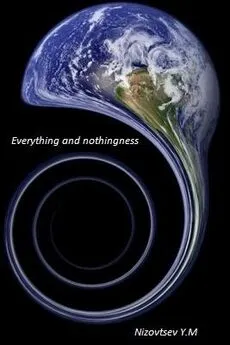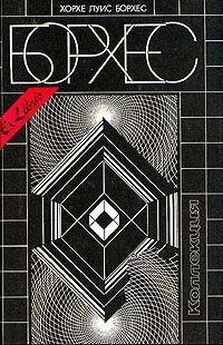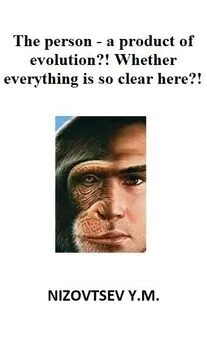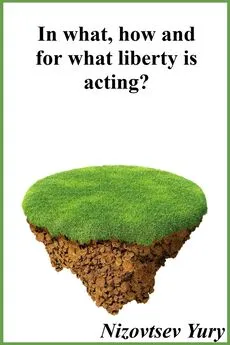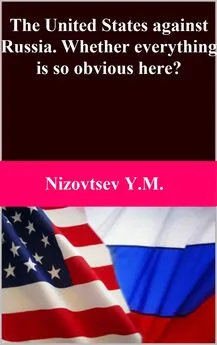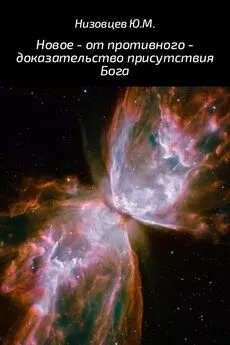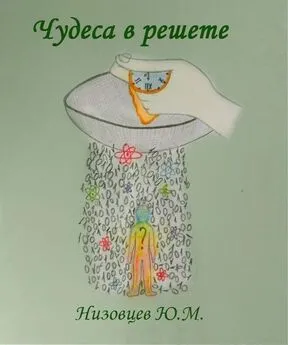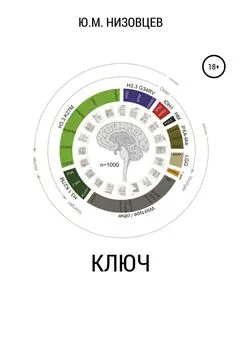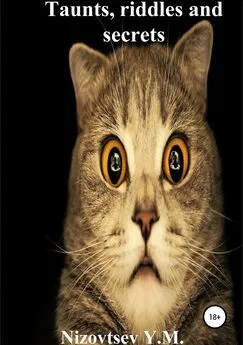Юрий Низовцев - Everything and nothingness
- Название:Everything and nothingness
- Автор:
- Жанр:
- Издательство:Array SelfPub.ru
- Год:неизвестен
- ISBN:нет данных
- Рейтинг:
- Избранное:Добавить в избранное
-
Отзывы:
-
Ваша оценка:
Юрий Низовцев - Everything and nothingness краткое содержание
Everything and nothingness - читать онлайн бесплатно ознакомительный отрывок
Интервал:
Закладка:
Nizovtsev Yu. M.
Everything and nothingness
(Adventures of consciousness)
Abstract
The book explains how nothingness turns into everything, remaining nothingness.
Keywords: consciousness, beingness, information, infinite, finite, matter, time, space, motion, the person.
Contents
Preface
C hapter 1
The infinite, but discrete information process, l inking the active and the passive, as essence of Creation
1.1. About objectivity, relativity and absoluteness of truth
1.2. The active and the passive in the unity and a division
1.3. Information as the echelon binding the passive and the active
1.4. Truth as manifestation of essences of different levels
1.5. Manifestation of consciousness at the levels of the live
1.6. Things in beingness as a projection of the fragments identified by consciousness into Uniform
1.7. The course of development of mankind in collisions the true and the false in the conditions of compression of time
1.8. Inescapability of imperfection of the person and human communities as propuls or of development of consciousness
C hapter 2
About the condition of existence of Creation
2.1. E ssence of Creation
2.2. Death and consciousness
2.3. Religion, philosophy and the true consciousness
2.4. The person as the hologram and a "worldly" being in Creation
Preface
The person is the strange creature. It seems – the mind is given to him to misquote and distort everything, spoil and punish himself.
His misfortune and happiness – this is what he can sense, and think, and comprehend himself simultaneously. All these features in total are peculiar to him alone. Perhaps sensing this, the sages of all time have recognized only the personality, and above it a kind of higher power, in part, to ensure that the person was not so lonely.
Nevertheless, on all reasonable questions about meaning of life and death you won't find intelligible answers anywhere. There are, of course, different views among philosophers, writers, in religious treatises, but they cause either yawning, or sectarian concern.
Probably, therefore the population more and more grows cold to process of knowledge, looking for only entertainments.
It is possible to live in aspirations to tasty food, harmful drinks, other pleasures, career, the power, money. Still it is possible both to do some fighting, and to plunge into mindnumbing job. But all this, at best, reduces the person to the level of an alpha male of the herd of orangutans.
Achievement of the similar purposes gives feeling of life, but doesn't allow expressing fully in vanity itself as to a being which is significantly different from animals.
Previously, it was difficult to publish a book with the answers to tricky questions, and thereby to question some foundations.
Now the Internet gives additional opportunities, though, of course, too limited: very much at once appeared "writers" – perhaps more than readers.
Be that as it may, for an example, we will raise couple of questions.
Well, let, the person is mortal, but after all and all planetary civilization too is the finite.
Whether long to some asteroid to brush away all live from the planet? Or the people themselves can destroy themselves entirely through the use of toxic substances or nuclear warheads.
So where all acquired – books, the ballet, music, science, equipment, i.e. culture and civilization – will get away? They will all perish forever?
Reasonable people will answer: everything passes – such is the nature of things.
People believers will tell – such is God's will.
However is not the answer to the posed question, but – evasion from the question.
Science only provides definitions, but does not determine anything in essence.
This impasse suggests that the world of things can only be as help for something, but it is not independent.
Accession to God, too, does not solve anything, because even in the heavenly tabernacles do nothing.
Means, some meaning is in brief human life and death only confirms this meaning.
Again, we take the issue of time. It seems there is nothing more obvious of this problem because we are in time, and it is clear – time gives us everything and, it seems, takes away everything. But where from does time come and what for it come?
If, for example, to tell banality in the form: time expresses duration and sequence of events of the world, or time is the form of current of physical processes, or time is an irreversible current in which everything occurs; these definitions don't answer the main issue – from where time undertook, who or what "produces" time, if produces, as well as – for what it is formed?
And after all still Kant fairly noticed that time isn't present outside consciousness. The science as if forgot about this, though up to Kant Aristotle stated the elementary idea – time, as number, someone has to count.
The set of other questions, on which still have not been given of definite and evidential answers, are discussed in this work, for example: Why never there will be perfection in anything? What is truth, and why it is so important – to strive for it and to liberty? What connects information process actually and how information correlated to time? Whether there is a movement as a first principle? Whether there is something external, controlling us? What is the reality given us in sensations? Than sense organs and the operating centers of any living being are occupied? Whether Creation is single or dual? Whether there is matter and if it exists, what balance of the Creation and why it is such? What is in the basis of beingness? How beingness is formed? Is there a purpose in this formation? Where from did the living beings appear, if they could not arise by self? Could things (inanimate) exist independently and whether there are they in general? What is consciousness and how it is correlated to inanimate (things)? What is time – uniform or accelerated, how time is formed and whether coincides time with beingness? What is the relationship between the infinite and the finite in Creation? What is the mechanism that keeps Creation from fall into the non-existence? What forms and how can be sustained indefinitely, i.e. – for which there are no forms of death, as well as which are transitory and why? What is the true meaning of existence the person and humanity and, in general, every appearing and disappearing planetary civilization? Why immortality for a person is not only impossible, but pointless? Why, like gumboil, materialists and idealists are one-sided?
Chapter 1
The infinite, but discrete information process, linking the active and the passive, as essence of Creation
1.1. About objectivity, relativity and absoluteness of truth.
If to assume that truth is adequate display of the reality in consciousness, or the adequate information on objects allowing the person to solve theoretical and practical problems, i.e. to developed consciously, don't stand still, to be in this regard as the free, then it is necessary to recognize by insufficient determination of truth as soon as correspondence of a thing to intelligence so as, in particular, during life the person every time after processing of information from different sources has no sufficient confidence in adequate display of the reality in own consciousness, and a lot of things he is forced to be taking on trust, and a lot of things to be testing in practice at random.
Therefore those correct solutions, which the person finds, is difficult to call as the ultimate truth, they are rather the result of his experience, experience of prior generations, its own ingenuity, its ability to produce some general, to develop new theories, to deduce regularities on the basis of which he can produce new experiments, drawing other conclusions, and etc. But all this doesn't give exhaustive and final knowledge of a subject.
Indeed, this definition can reflect only aspiration of human intelligence to cognition of things. The intelligence of the person is feeble, his life is short, and the real world is infinitely various. Some established patterns during cognition, flow of life are changed by others; new relationships, communications emerge.
At this the world of the human relations is more complex and unstable, than the physical world. All achievements of human thought don't lead to elimination of dissociation of certain individuals and different peoples.
The nature shows the force periodically, incomparable with human, easily breaking any human construction, as and the person, despite a present technical equipment of mankind.
Therefore the doubt appears in many minds: are there any comprehensive, full or absolute truths generally, time nothing can make the person happy, his life the infinite and cloudless and, at the same time, meaningful?
And indeed, we can operate by concept of absolute truth only concerning such banal statements as Volga flows into the Caspian Sea, and even then – in frames of the current life, when there are still seas and life itself.
The deepening of scientists in the microcosm, in space exploration doesn't explain the appearance of the live in this world, appearance of self-consciousness in the humanoid, more precisely, the appearance of the being which can understand itself in any way.
Therefore the definition of truth as full and exhaustive knowledge about such complex organized system of the world, believing such truth by absolute, absurdly on several reasons.
In particular, it is impossible to exhaust knowledge, inasmuch process of cognition so vast in the relations even only the Universe known to us is boundless. Besides that, process of cognition by the person is limited by five sense organs and opportunities of his cogitative apparatus.
Besides, there are also other measurements which, in principle, are unavailable to neither sensations of the person, nor his analytical skills. And generally, beingness, opened by consciousness in interaction with it, all the time changes, and these changes are irreversible. Changes of consciousness, from which depends quality of beingness, manifested by consciousness, are unpredictable and often arbitrary. If the absolute, more precisely, the fundamental truth nevertheless exists, it should be defined in another way – without binding to pansophy, which is impossible and senseless.
As for objectivity of truth, this concept is interpreted by materialists, for example, in the person of Lenin V. I. so: "… can human ideas have a content that don't depend on a subject, that doesn't depend either on a human being, or on humanity?" [1, chapter 2.4]; "For the materialist, sensations are images of the sole and ultimate objective reality, – ultimate not in the sense that it has already explored to the end, but in the sense that there is not and can't be other" [1, chapter 2.4].
Certainly, for the person and mankind objectivity of truth is manifested in existence of stars, planets, the person and his civilization; it is difficult to argue with this fact so how all this exists apart his will, and for example it is difficult "to force down" the Sun from an orbit, as well as to cancel all chemical and physical processes in a world and in an organism of the person.
Читать дальшеИнтервал:
Закладка:
